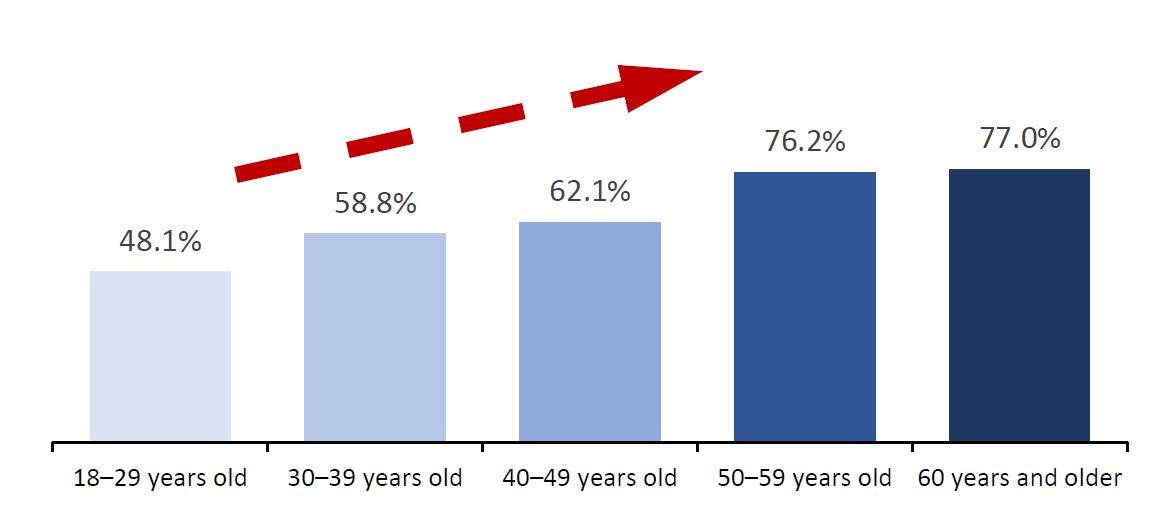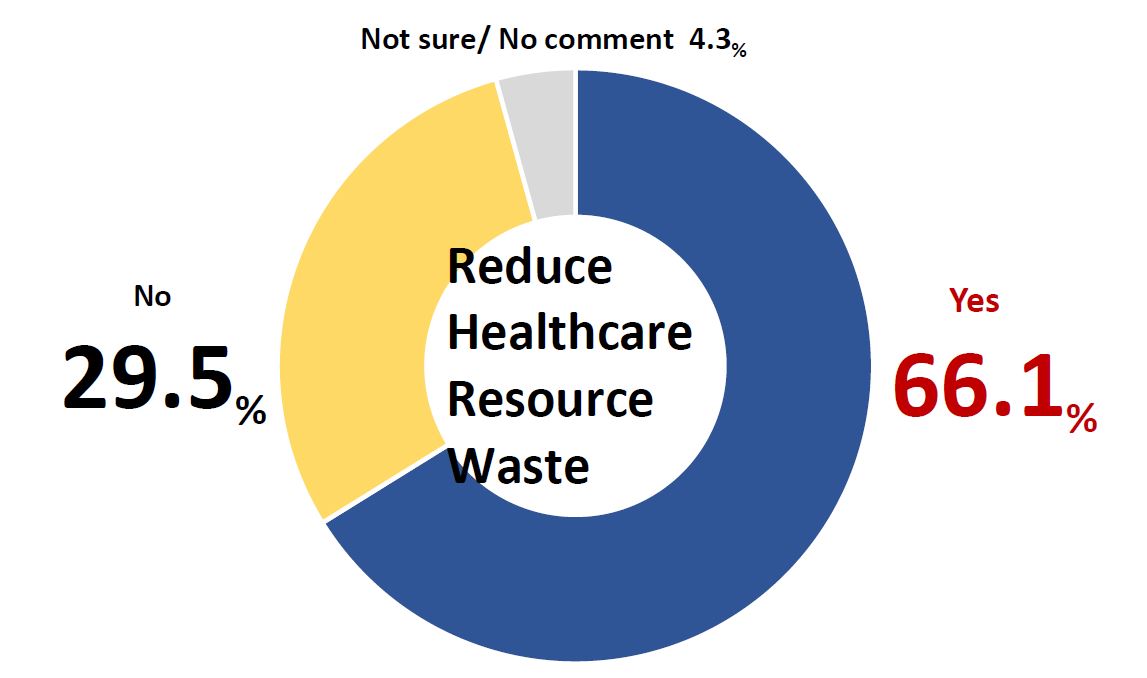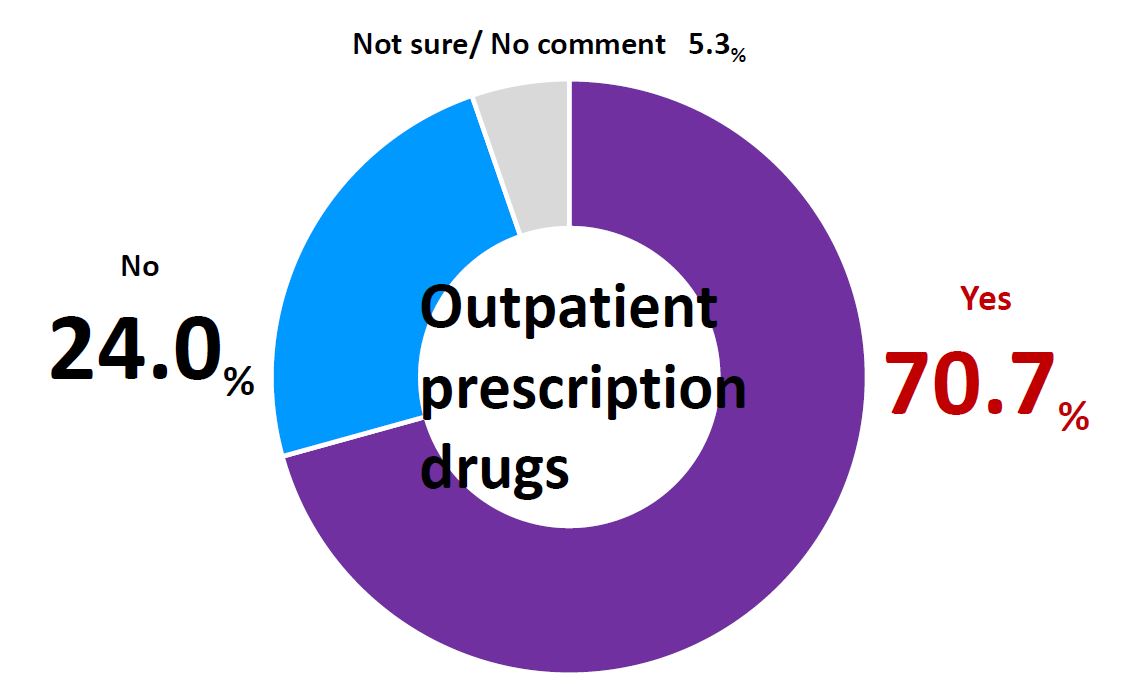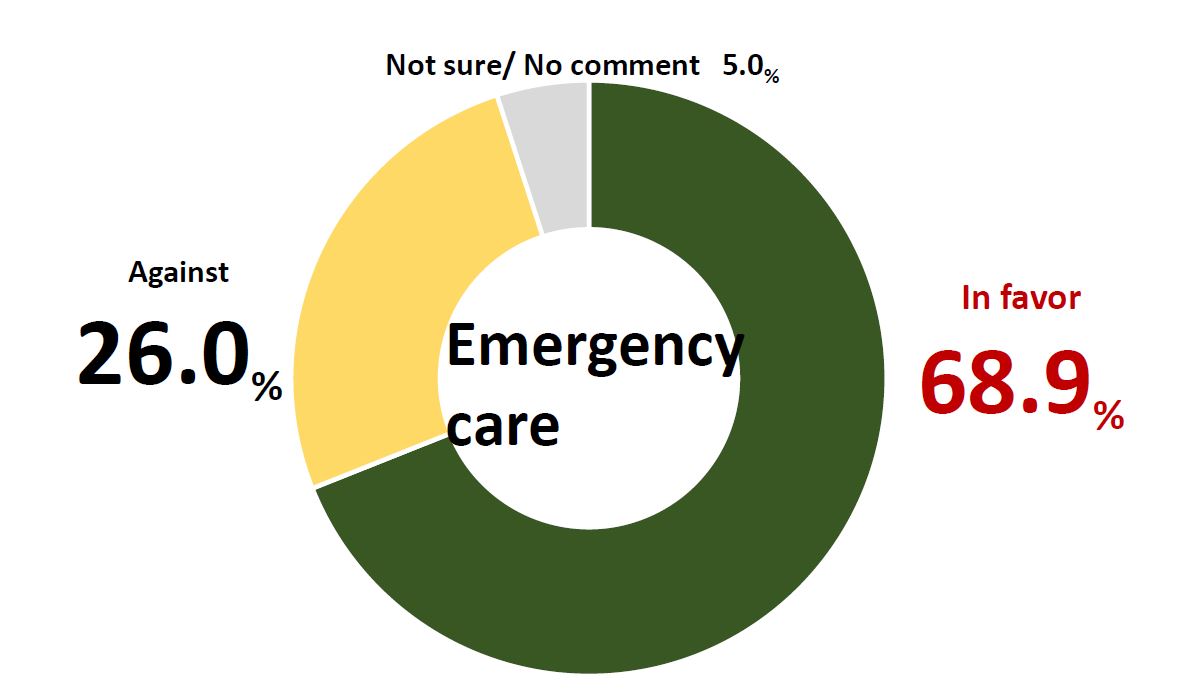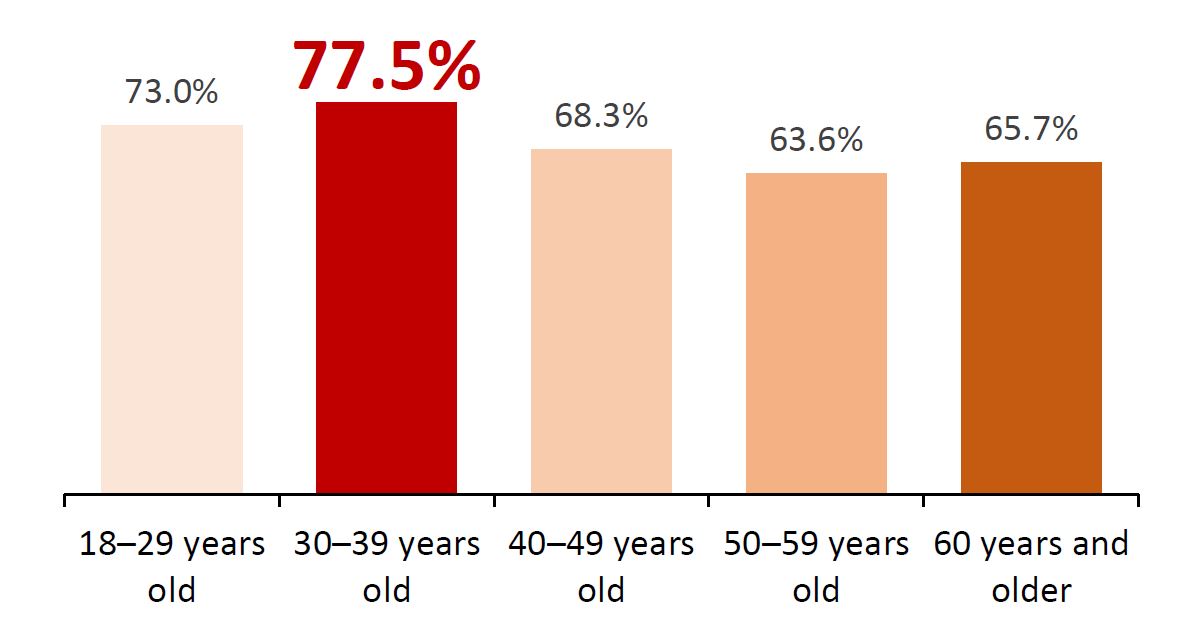Issues about the NHI have always received attention from the public. As the new copayment system being implemented on July 1, relevant discussions and debates resurfaced. In order to find out what people really think about the new system. ETtoday Poll announced the results of a poll on the new copayment system. The responders came from all 22 counties and cities in Taiwan and 95% of the surveys are valid. It shows that Taiwanese people truly cares about healthcare resource issues.
Question: Do you know National Health Insurance Administration (NHIA) is implementing a new copayment system? (Number of people answered: 1,519)
The cross analysis on the poll results showed that the rate of awareness increases as the age of responders increases.
Question: Do you think implementing the new copayment system can reduce healthcare resource waste? (Number of people answered: 1,519)
According to the latest poll results, 66.1% of the people are aware of NHI copayment adjustment on July 1 and the rate of awareness increases as the age of responders increases. Moreover, the poll results showed that 66.1% of the responders believe that the copayment adjustment will effectively reduce healthcare resource waste.
Question: Are you in favor of the NHI copayment adjustment for outpatient prescription drugs? (Number of people answered: 1,519)
Question (regarding modifying the copayment system for outpatient prescription drugs): Why are you in favor of the new system? (Choosing more than one answers is acceptable; number of people answered: 1,075)
The new system raised the upper limit for outpatient prescription drug copayment in medical centers and regional hospitals to NT$300. In addition, the copayment system for refillable prescriptions for patients with chronic illnesses has been modified. In the past, no copayments were charged to fill out refillable prescriptions for patients with chronic illnesses. However, to encourage patients with a stable condition to visit local clinics instead of large hospitals, a copayment will be charged according to the standards of regular outpatient prescription drugs when filling the prescription in a hospital for the first time while filling out the prescription in a clinic remains free of charge. For patients filling out such prescriptions in a hospital, the copayment is waived starting from the second time. As for the near-poor households and individuals with disabilities, the outpatient prescription drug copayment remains to be charged according to the standards of a clinic regardless of the level of the medical institution they visit. According to the poll results, 70.7% of the responders are in favor of the new outpatient prescription drug copayment system. The top three reasons for the responders to be in favor are that the new system prompts people to cherish NHI resources (75.6%), encourages the implementation of the hierarchy of medical care policy (66.2%), and helps to reduce the burden for NHI (65.8%).
Question: Are you in favor of the new NHI copayment system for emergency care? (Number of people answered: 1,519)
A cross analysis on the supporting rate and age of the responders in favor of the modification of emergency care copayment revealed that the age group of 30–39 years old is the most supportive (77.5%) of all.
Question (regarding modifying the copayment system for emergency care): Why are you in favor of this system? (Choosing more than one answers is acceptable; number of people answered: 1,047)
The new copayment system for emergency care is charging a fixed rate according to the level of the medical institution that the patient visits. The rate in medical centers is raised to NT$750, that in regional hospital is raised to NT$400, and that in district hospitals and clinics remains NT$150. For the near-poor households and individuals with disabilities, the emergency care copayment in medical centers is NT$550, that in regional hospitals is NT$300, and that in district hospitals and clinics is NT$150. According to the poll results, 68.9% of the responders are in favor of the new emergency care copayment system; of which, the age group of 30–39 years old is the most supportive (77.5%). The top three reasons for the responders to be in favor of the new system are that the new system can ease up the overcrowding situation in large hospitals and emergency rooms (66.5%), ensure the implementation of the hierarchy of medical care policy (64.6%), and prompt people to cherish NHI resources (64.6%).
The poll results revealed that the majority of the people are in favor of the new system. Moreover, the results revealed people’s concerns regarding healthcare resource distributions and their expectations for NHI system reforms. NHIA expects that the new copayment system can prompt the public to modify their medical visit habits, be aware of medication safety, and cherish medical resources. Moreover, the new system is expected to improve the effectiveness of medical services and optimize the benefits of NHI.
For more information regarding the new NHI copayment system, please visit the following website: https://eng.nhi.gov.tw/en/cp-1257-fee28-17-2.html



